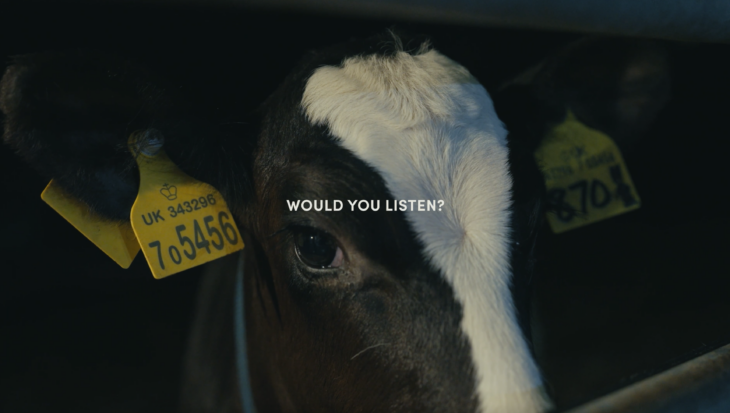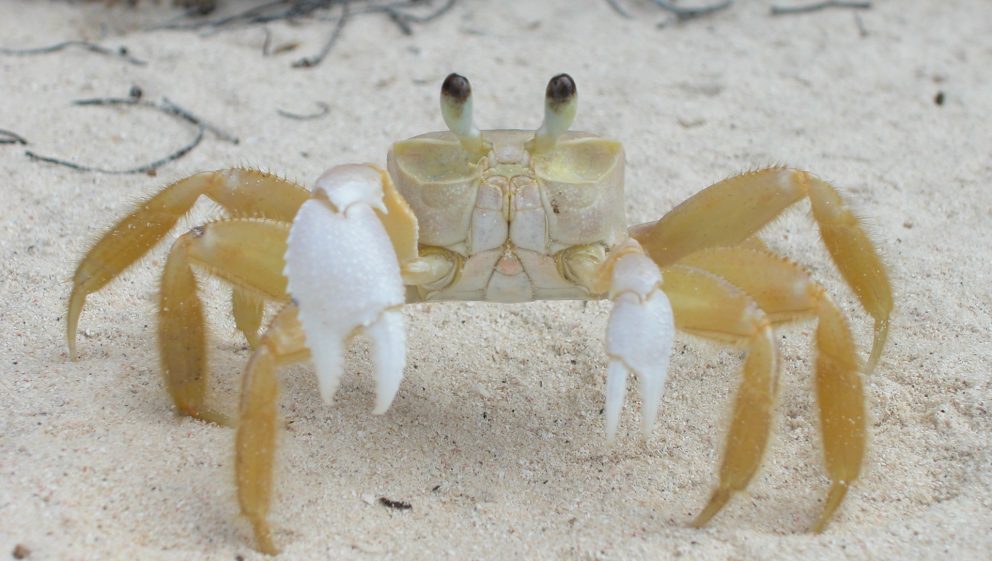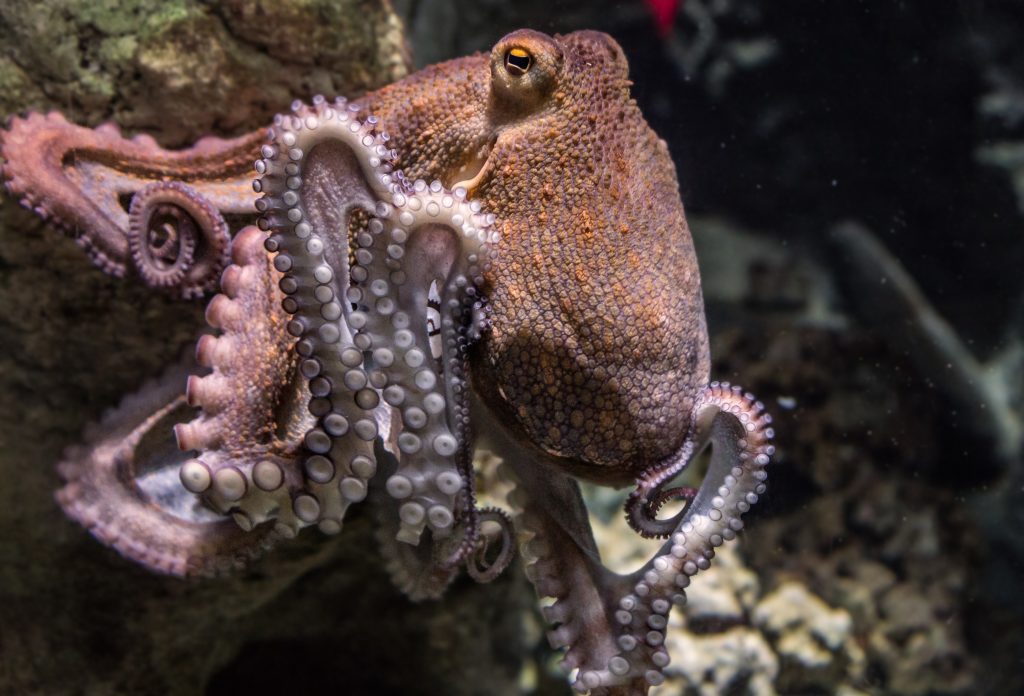The making of the UK’s first anti-dairy TV and Cinema advert, plus an exclusive look at the UNCENSORED version
Posted 06 May 2025

Posted on the 24th November 2021
A new government report confirms what many of us knew or suspected all along, namely that cephalopods (such as octopuses, squid and nautilus) and decapod crustaceans (like crabs, lobsters, prawns and crayfish) can feel pain. It is very positive to see this formal recognition.

A year ago, in response to campaigning by Crustacean Compassion and The Shellfish Network, the Department for Environment, Food and Rural Affairs (Defra) commissioned an independent evidence-gathering review, by the London School of Economics (LSE). This explored whether cephalopods and decapods should be deemed sentient.
Animal Aid were delighted to be included and duly provided a detailed response. The team of experts at LSE concluded that there is strong scientific evidence that crustaceans and molluscs can feel pain and strongly recommended their protection in animal welfare legislation going forwards. You can read the report here.
The authors of the report advise against a number of standard industry practices; ‘nicking’ (cutting the tendon of a crab’s claw to stop them injuring each other and humans during transportation), ‘eyestalk ablation’ (slicing off a female shrimp’s eyestalk with a razor to accelerate breeding), and ‘declawing’ crabs before putting them back in water. Declawing wasn’t allowed in the UK until recently, when legislation was overridden by EU law. The authors also recommend against the sale of live decapod crustaceans to ‘untrained, non-expert handlers’. Currently, these animals are subjected to poor handling and inappropriate storage – and they risk death by boiling or being dismembered whilst alive and fully conscious.

Octopus are thankfully not farmed in the UK but the authors from LSE suggest that the government could consider a ban on imported farmed octopus. They acknowledge that ‘high welfare’ octopus is impossible as they are solitary animals who are aggressive toward each other in confined spaces. They also state that ‘on current evidence, there is no slaughter method for cephalopods that is both humane and commercially viable on a large scale.’
We are shocked and disappointed to note from the Government website that the regulation relating to the treatment of these animals will not change immediately. In fact, it will not affect any existing legislation or ‘industry practices’ such as fishing. With regards to shellfish, it states “Existing industry practices will not be affected and there will be no direct impact on shellfish catching or in restaurant kitchens.” Animal Aid have grave concerns that this means ‘business as usual’ with lobsters, crabs or langoustines being boiled alive whilst fully conscious. This is absolutely cruel and unacceptable.
It should, however, help to influence industry perception and encourage all members to take the animals’ needs and welfare into account. We are hopeful that this could translate into positive progress with regards to the Animals In Scientific Procedures Act 1986 (ASPA) and the potential inclusion of crustaceans. In 2012 the scope of the Act was extended to ‘any living cephalopod’.
Recent public polling has revealed high levels of support for the idea that invertebrates are capable of feeling pain. At the upper end, the vast majority of participants agreed that lobsters (83.03%), octopuses (80.65%), and crabs (78.09%) can feel pain. The overwhelming majority of participants agreed that if scientific experts believe there is some evidence that an animal could be capable of feeling pain, we should be careful about potentially harming them (91.06%).
“A human being is a part of the whole called by us universe, a part limited in time and space. He experiences himself, his thoughts and feeling as something separated from the rest, a kind of optical delusion of his consciousness. This delusion is a kind of prison for us, restricting us to our personal desires and to affection for a few persons nearest to us. Our task must be to free ourselves from this prison by widening our circle of compassion to embrace all living creatures and the whole of nature in its beauty.”
― Albert Einstein
Order a free Guide to Going VeganPosted 06 May 2025

Yesterday, Michelle, our Head of Campaigns, headed into London to attend the debate on the government petition which urged ‘Ban immediately the use of dogs in scientific and regulatory procedures’.
Posted 29 Apr 2025
